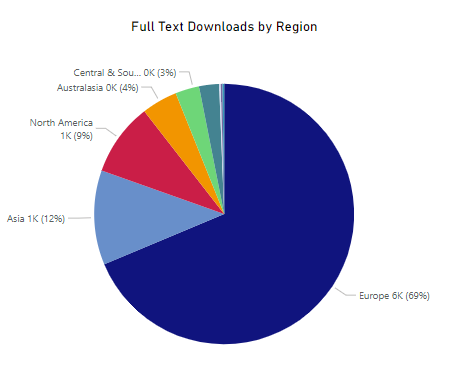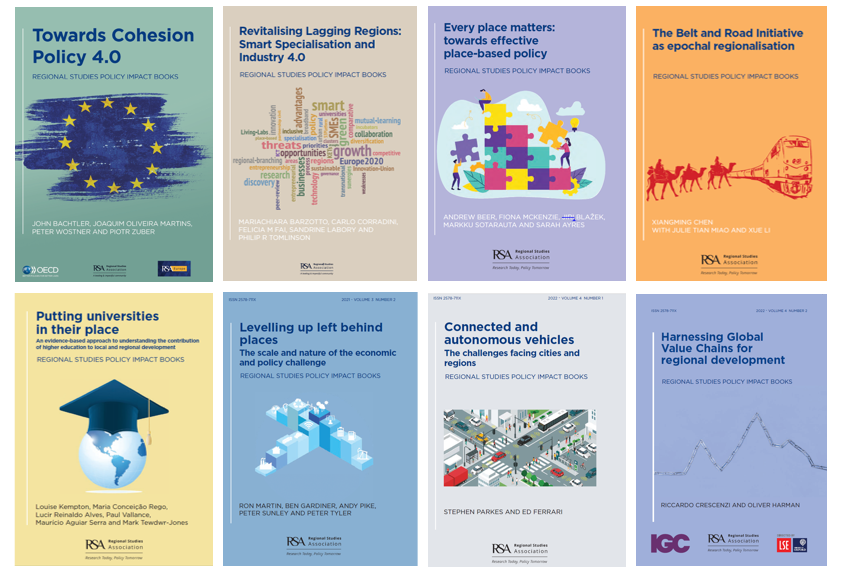The Association seeks a leading and impactful role for its community, to inform and influence policy and practice in creative and ambitious ways. The aim is to support Expos addressing issues that are important, current and having an impact on society. These Expos will investigate how the communities of regional studies, regional science, urban studies and related fields can respond to new societal challenges and opportunities.
The two key deliverables from the Expo are:
1. An article for Regional Studies, Regional Science with the APC sponsored by the Association from the withheld portion of the grant (articles will be subject to peer review)
2. A policy-facing book in the new Regional Studies Policy Impact series (25,000-30,000 words). This can be in the form of a report or edited papers with an introduction and conclusion. It must include an executive summary highlighting the policy implications from the work, and it must be accessible to policymakers and practitioners. The RSA will provide advice on book templates to maximise policy impact. This book would normally be expected to be launched by the Association at an appropriate time and venue and will be given in print form to all RSA members and in electronic form to all subscribers to the RSA journals pack. This gives each book a very substantial potential readership footprint. Additional copies will be purchased by the Association for distribution to the policy community directly.
SUPPORT FOR AUTHORS
Policy Expo authors benefit from global RSA dissemination support:
- support for a project launch event
- social media promotion including Twitter, LinkedIn, RSA e-bulletin, Facebook, WeChat, Instagram
- publication platforms including RSA Regions magazine and the RSA Blog
- free access to e-books provided to up to 50 named policymakers
- global reach via e-book access for all RSA members and any library that is subscribed to the RSA journals
- support to host a webinar
- support to host a book launch
APPLICATION QUERIES
Any queries should be addressed to policyexpo@regionalstudies.org.
2026 submission deadline: 24th November 2026, 5pm GMT
The Policy Expo Grant Scheme operates a two stage application and assessment process. In the first round, applicants are asked to submit an expression of interest. The Expression of Interest template form can be downloaded here. If you are wanting to apply for Policy Expo funding, please complete the online application process. To access this, please login to RSA Lounge, and click on Community, Grants. If your membership status is eligible, you will see the link to apply for a Policy Expo.
If your Expression of Interest is approved, you may apply for the second stage via RSA Lounge. Once you are logged into RSA Lounge, please click on Community, Grants. If you are eligible, you will see a link to the online application. For technical issues, please email alex.holmes@regionalstudies.org
Download the expression of interest template and handbook.
Regional Studies Policy Impact Books
This book series forms a series of punchy, policy facing books addressing issues of contemporary concern. There is a consistent focus on the impact of policy research both in terms of its reach to policy, academic and practitioner communities and also in its significance, to show how evidence can inform policy change within regional and urban studies. Members can access these books online via the RSA Lounge, Publications.
Books published in the Series can be purchased here.
Download statistics and graph to end 2022:
2019 (Policy Expo launch year): 579
2020: 1692
2021: 3731
2022: 6003

(Data current @ May 2023)
